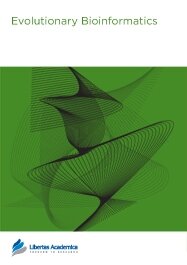

Publication Date: 30 Jan 2008
Journal: Evolutionary Bioinformatics
Citation: Evolutionary Bioinformatics Online 2007:3 299-307

1Institute for Advanced Study, Einstein Dr., Princeton, NJ 08540, U.S.A. 2Fred Hutchinson Cancer Research Center, Seattle, Washington 98109, U.S.A.
Abstract
Influenza is an RNA virus that causes mild to severe respiratory symptoms in humans and other hosts. Every year approximately half a million people around the world die from seasonal Influenza. But this number is substantially larger in the case of pandemics, with the most dramatic instance being the 1918 “Spanish flu” that killed more than 50 million people worldwide. In the last few years, thousands of Influenza genomic sequences have become publicly available, including the 1918 pandemic strain and many isolates from non-human hosts. Using these data and developing adequate bioinformatic and statistical tools, some of the major questions surrounding Influenza evolution are becoming tractable. Are the mutations and reassortments random? What are the patterns behind the virus’s evolution? What are the necessary and sufficient conditions for a virus adapted to one host to infect a different host? Why is Influenza seasonal? In this review, we summarize some of the recent progress in understanding the evolution of the virus.
PDF (408.79 KB PDF FORMAT)
RIS citation (ENDNOTE, REFERENCE MANAGER, PROCITE, REFWORKS)
BibTex citation (BIBDESK, LATEX)
XML
PMC HTML

My co-authors and I had a very positive experience with the review and publication process in Evolutionary Bioinformatics. The reviewers were rapid and on point, and publication was also rapid after we made the necessary revisions.

All authors are surveyed after their articles are published. Authors are asked to rate their experience in a variety of areas, and their responses help us to monitor our performance. Presented here are their responses in some key areas. No 'poor' or 'very poor' responses were received; these are represented in the 'other' category.See Our Results
Copyright © 2013 Libertas Academica Ltd (except open access articles and accompanying metadata and supplementary files.)
Facebook Google+ Twitter
Pinterest Tumblr YouTube